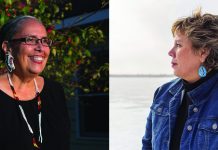St. Olaf College professors Kaethe Schwehn and L. DeAne Lagerquist compiled essays from 14 fellow faculty members in Claiming Our Callings: Toward a New Understanding of Vocation in the Liberal Arts to share their thoughts about young people’s need to find purpose beyond material success and status once they enter the adult world.
“Why do we live in a system of vocational scarcity, where there are more alienating jobs than fulfilling work? … Why don’t we reinvent the system so that work is designed not just for profit but for the fulfillment of human beings and the flourishing of the earth? … Would it be possible to make work more enticing than the weekend?”
–James J. Farrell, history and American studies
“As a young social worker, I found myself working on an oncology floor of a small urban hospital … Part of what prepared me for this stressful work with people dying from a new disease [AIDS] was the college courses I had in sociology, history, human biology, and religion. These, in addition to my social-work courses, enabled me to think clearly and act with integrity in this situation.”
–Mary S. Carlsen, social work
“There are many different kinds of vocation. Some people find deep reward and meaning from the work that they do for pay everyday. They are no doubt fortunate to have their greatest amount of time spent on their strongest passion. But I think (from my unscientific sampling of middle-aged adults with degrees from fancy colleges) that such people are in the minority.”
–Thomas Williamson, anthropology
“Often self-knowledge is a process that unfolds over time. Students in my class have found reassuring the idea that a sense of vocation may come not in a singular moment of epiphany but instead through a process of detecting what is meaningful, what is valued most deeply, what gives joy, and what talents are present to give.”






